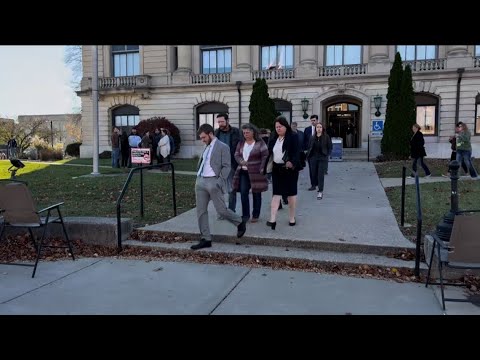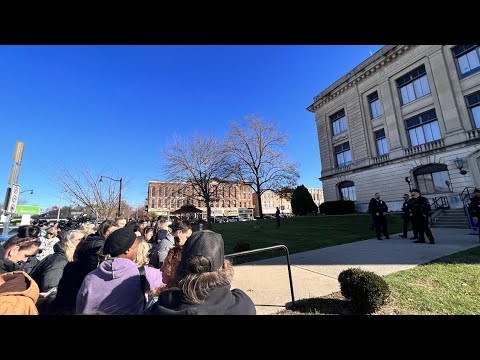
Richard Allen A Trailblazing Preacher For Racial Equality
Richard Allen, born into slavery in 1760, carved out a legacy that resonates powerfully in today’s society. Not just a man of faith, but a beacon of hope for racial equality, Allen was the founder of the African Methodist Episcopal Church (AME). He created a spiritual haven for African Americans while also laying the groundwork for activism at a time when racial injustices were rampant. His approach to blending faith and activism made him a forward-thinking leader, and his work is as relevant today as ever, echoing the ongoing struggles for equality in America.
Allen’s life story unfolds against a backdrop of profound challenges. After gaining his freedom, he faced discrimination even within the church—forced to hold segregated sermons at St. George’s Methodist Church. Feeling frustrated, he and over forty fellow congregants left in search of a space that truly accepted them. This determination to stand against racial injustices set Allen on a path that changed religious and social landscapes for generations.
His lasting impact extends beyond his life, creating a legacy that continues to inspire activists today. By championing the cause of African Americans and combining spirituality with civil rights, Allen’s vision is palpable in various modern movements striving for social change. From the Black Lives Matter movement to faith-based activism, Allen’s influence remains a driving force that ignites conversations on justice and equity.
The Legacy of Richard Allen in American History
Richard Allen’s legacy is woven firmly into the fabric of American history. As the founder of the AME Church in 1816, he provided a platform where African Americans could exercise governance, education, and social reform. Establishing a distinct faith community allowed Black congregants to shed the oppressive structures of white churches which often excluded them.
The AME Church offered more than spiritual sustenance. It became a critical space for discussions around civil rights, empowering its members to actively participate in advocacy efforts. Allen recognized that addressing the spiritual needs of his community was intertwined with promoting social justice.
In recent years, efforts to reclaim Allen’s contributions have gained momentum. Scholars and filmmakers alike are revisiting his legacy, showcasing how he paved the way for future leaders and movements. Richard Allen’s commitment to racial equality is honored not just within church walls but also in broader social contexts, reminding us that the fight for justice was rooted in faith.

Key Moments in Richard Allen’s Journey Toward Racial Equality
1. Establishing the AME Church
Richard Allen’s biggest triumph was the establishment of the AME Church. He gathered like-minded individuals who shared his vision for a space free from racial prejudice. Founded on principles of equality, this church empowered its members to take responsibility for their education and community affairs.
2. Advocacy Against Slavery
Allen didn’t shy away from addressing the issue of slavery head-on. His notable sermons contained powerful messages advocating for liberation and dignity. He wasn’t just a preacher; he was a voice for change, championing racial justice at a time when few dared to speak out.
3. Education Initiatives
Education was central to Allen’s advocacy. He understood that literacy and knowledge were essential tools for empowerment. Recognizing the barriers faced by Black children, he championed educational initiatives that aimed to elevate his community.
4. Collaboration with Other Activists
Working alongside notable civil rights figures like Frederick Douglass and Sojourner Truth, Allen exemplified the strength found in unity. His collaborations reinforced a collective approach to tackling the systemic issues of oppression faced by African Americans.
5. Conflict with White Methodist Leaders
Allen’s conflicts with white church leaders unveiled the systemic racism embedded within religious institutions. His bold leadership in creating a separate denomination resonated with other marginalized groups, showing them the power of community and advocacy.
6. Influence on Future Generations
The principles laid down by Allen became a guiding light for future Black leaders such as W.E.B. Du Bois and Martin Luther King Jr. His blend of activism and spirituality created a framework for social change that continues to inspire.
7. Cultural Impact of the AME Church
The AME Church solidified its role as a cultural hub for African Americans, advocating for civil rights and serving as a place for engagement and community organizing. As America grapples with ongoing social issues, the church’s relevance remains undeniable.
The Broader Impact of Richard Allen on Racial Equality Movements
Richard Allen’s influence extends far beyond his own time. It serves as a roadmap for contemporary civil rights leaders. He demonstrated that faith could act as a catalyst for social change. By merging spiritual teachings with activism, Allen laid the groundwork for a generation of leaders who would come to influence the landscape of racial justice.
The evolving struggles for equality today can often trace back to the foundational work Allen set in motion. Today, as we face challenges surrounding policing, economic disparity, and systemic bias, Allen’s story reminds us of the importance of active participation in fighting for change.

Comparisons to Other Influential Figures
The landscape of racial equality has seen many figures who followed in Allen’s footsteps, each contributing uniquely to ongoing dialogues.
The Enduring Relevance of Richard Allen’s Message
Richard Allen’s legacy is a powerful reminder of the role faith plays in aspiration and advocacy for racial equality. His life epitomizes the idea that real change requires both spiritual commitment and concrete action. As we honor his contributions, we are reminded that every voice matters in ongoing quests for equity.
In today’s context, Allen’s teachings become a call to action. They encourage current activists to bridge historical knowledge with contemporary challenges. Though the fight for justice continues, pioneers like Richard Allen paved the way, ensuring that hope for change burns brightly in the hearts of those who seek to redefine society’s fabric for the better.
As we reflect on Richard Allen’s work, may we all be inspired to speak out, as his legacy teaches us the power of unity, resilience, and faith in our pursuit of social justice.
Richard Allen: A Trailblazer for Racial Equality
Early Life and Influence
Richard Allen’s journey is an inspiring one, rooted deep in the challenge and quest for racial equality. Born in 1760 into slavery in Philadelphia, his early struggles didn’t deter him from seeking education and self-improvement. In fact, it was this drive that eventually led him to establish the African Methodist Episcopal Church, a place where Black worshippers could gather freely and exercise their faith. Allen’s commitment to uplifting his community shines through his achievements. Interestingly, one of the less commonly known facts about him is that he was also an advocate for education, which paved the way for initiatives like the one at Wesleyan University ’ s acceptance rate, showing how critical education has been for marginalized communities over the centuries.
Pioneering Spirit and Legacy
Beyond faith, Allen’s pioneering spirit extended into the political arena. He fervently supported abolition and social justice, standing up against racial injustices of his time. This was an era when many were still grappling with the legacy of slavery, which is why figures like Richard Allen are so vital to understanding the progress we’ve made, and the road that lies ahead. And speaking of unrealized potential, did you know some unclaimed property in Maryland could belong to descendants of historical figures like him? You can find out more about that fascinating piece of history through unclaimed property in Maryland, which might just shed light on unusual legacies.
Historical Impact and Reflection
Richard Allen’s dedication wasn’t confined to religion and education; he believed in uplifting entire communities. He tirelessly worked to champion civil rights and to establish a sense of belonging for Black people in America. Connecting it back to current realities, today’s social change advocates can look to his legacy for inspiration as they address modern inequities. For instance, speaking of contemporary voices, it’s intriguing to think about how filmmakers like Sean Durkin portray nuanced societal themes in their work. These narratives allow us to reflect on the ongoing battle for equality that Richard Allen so passionately fought.
Ultimately, the impact of Richard Allen is a reminder of the strength found in community and the enduring fight for justice. As we navigate through history, his milestones continue to resonate, calling on us to acknowledge past struggles and celebrate progress with both gratitude and purpose. Whether it’s following in the footsteps of inspiring figures like Allen or exploring modern landscapes like Torrentz 2 for cultural representations, the quest for knowledge and equality remains ever relevant.

What was Richard Allen known for?
Richard Allen was a prominent Methodist preacher and a strong advocate for racial equality. He founded the African Methodist Episcopal Church, which became one of the largest independent African American denominations in the U.S.
Why did Richard Allen leave the Methodist Church?
Richard Allen left the Methodist Church due to frustrations over segregation and racial tensions. He and a group of followers decided to break away from St. George’s Methodist Church to create a space where they could worship freely.
What did Richard Allen do in the Revolutionary War?
During the Revolutionary War, Richard Allen served as a civilian. He wasn’t in the military but was involved in supporting efforts for freedom and equality.
Was Richard Allen a mason?
Yes, Richard Allen was a Freemason, meaning he was a member of the Freemason organization. He was part of African Lodge 459 in Philadelphia, which was formed in 1797.
What was Richard the First famous for?
Richard Allen, Sr. was known for being the first sheriff of the newly created Wilkes County in 1778, a position he held for many years and during which he participated in the constitutional convention.
What is the Ame pension scandal?
The Ame pension scandal involved financial mismanagement and misuse of funds intended for retired ministers and their families within the African Methodist Episcopal Church, causing significant controversy.
What is a famous quote from Richard Allen?
One famous quote from Richard Allen is, “All people ought to have the opportunity to worship according to the dictates of their own conscience.”
Why are people leaving the United Methodist Church?
People are leaving the United Methodist Church for various reasons, including disputes over theological issues, social issues, and the church’s stance on LGBTQ+ rights, leading some to feel disconnected.
Does the free African society still exist?
The Free African Society, founded in 1787 by Richard Allen and others, still exists today, though its current activities may differ from its original focus on mutual aid and support for African Americans.
Who is the true father of the American Revolution?
The true father of the American Revolution is often considered to be Samuel Adams for his role in organizing resistance against British rule.
Which American revolutionary officer was hanged in 1776 for spying on the British?
Nathan Hale was an American revolutionary officer who was hanged in 1776 for spying on the British, famously stating, “I only regret that I have but one life to lose for my country.”
Was Richard Allen in the military?
Richard Allen did not serve in the military, though he was involved in community efforts during the War.
What celebrity is a member of the Mason?
Notable celebrities who are members of the Masons include actors like John Wayne, Sean Connery, and many others who have been part of this fraternal organization.
Who is the father of Freemasonry?
The father of Freemasonry is generally regarded as Sir Christopher Wren, especially for his influential role in founding the Grand Lodge of England in 1717.
What religion was Richard Allen?
Richard Allen was a Christian, specifically a Methodist preacher who played a significant role in the African Methodist Episcopal Church.
What was William Allen known for?
William Allen was known for being a prominent educator and philanthropist in the 18th century, contributing to early American education and the founding of Penn State University.
What was Little Richard most known for?
Little Richard was most known for his energetic performance style and hit songs like “Tutti Frutti,” which helped shape rock and roll music in the 1950s.
What is James Allen known for?
James Allen is best known for his book “As a Man Thinketh,” which focuses on the power of thought and its effect on personal success and character.
What was Richard Wright best known for?
Richard Wright was best known for his powerful writings on race and identity, especially in his acclaimed works like “Native Son” and “Black Boy.”












